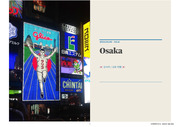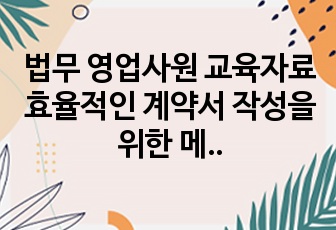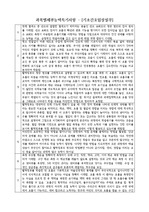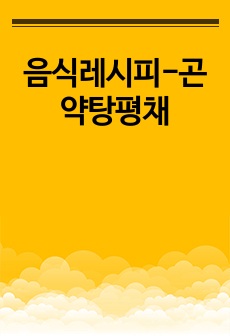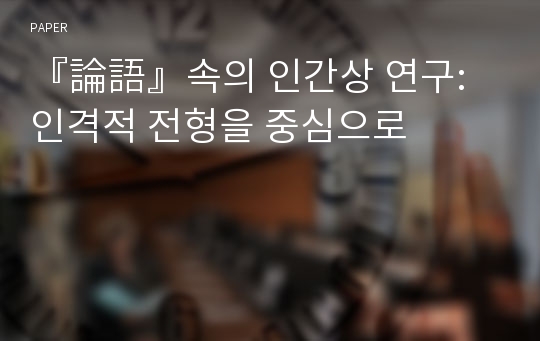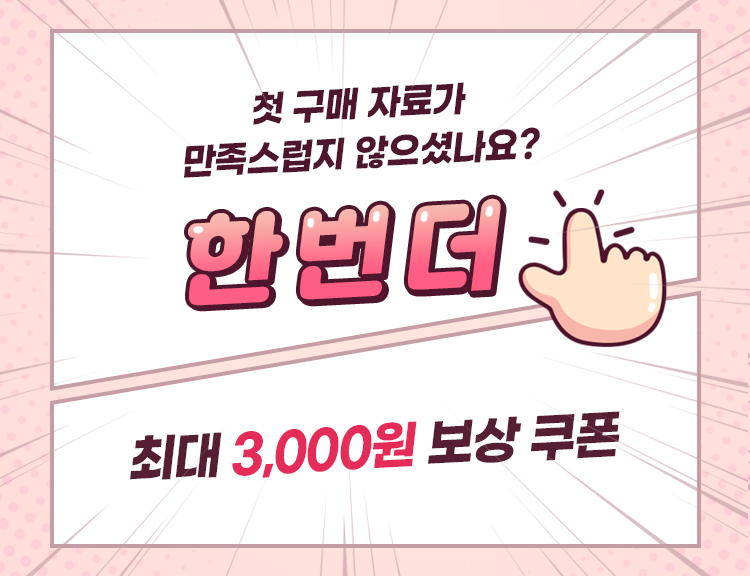『論語』속의 인간상 연구: 인격적 전형을 중심으로
* 본 문서는 배포용으로 복사 및 편집이 불가합니다.
서지정보
ㆍ발행기관 : 한국도덕윤리과교육학회
ㆍ수록지정보 : 도덕윤리과교육
ㆍ저자명 : 강봉수
ㆍ저자명 : 강봉수
목차
I. 서 론Ⅱ. 聖人과 隱者
Ⅲ. 君子와 小人
Ⅳ. 士와 民
Ⅴ. 결론
참고문헌
한국어 초록
이 글은 『論語』속에 나타나는 인간상들의 인성적 특질을 탐구한 것이다. 검토된 인간상들은 聖人, 隱者, 君子, 小人, 士, 民등이다.
성인은 학문적 성취를 이룬 자이고, 무위적 윤리와 무위의 정치를 실현할 수 있는 완성된 인
간이다. 무위의 법칙에 따라 살아간다는 점에서 은자 혹은 현자들도 성인의 반열에 있는 전형
들이다. 군자는 성인이 되기 위해 수양하는 자이기에 성인의 인성적 특질과 겹치는 부분이 있
다. 그럼에도 군자가 성인에 미칠 수 없는 결정적 차이는 아직 그가 무위윤리적 仁의 덕까지는
소유하지 못했다는 점이다. 군자됨의 출발은 자기수양에 있다. 자기 수양을 바탕으로 남을 편안
케 하고, 백성을 편안케 하는 일에 나서는 이가 바로 군자이다. 군자가 성인을 따라 배우려는
수양인이라면, 소인은 그 대립 항에 있는 사람이다. 군자가 도덕적인 수양을 바탕으로 바른 정
치를 하는 사람이라면, 소인은 도덕적 수양 없이 이익과 명예만을 추구하는 부정적 의미의 정
치가를 지칭한다. 사(士)는 아직 군자에는 미치지 못하지만 인간사회의 리더가 되기를 희망하는
사람들이다. 사(士)라고 해서 모두가 같은 급의 선비는 아니다. 사(士)의 유형에는 선인(善人)ㆍ
유항자(有恒者)ㆍ지자(知者)ㆍ긍자(矜者)ㆍ우자(愚者)ㆍ광자(狂者)ㆍ견자(狷者) 등으로 지칭되는
이들이 있다. 이들은 각각 어느 한 측면의 덕이 특별히 두드러진 자들을 지칭한다. 처음부터 모
든 덕을 습득할 수는 없다. 사람은 개인마다 자질이 다를 수 있고, 그러기에 어느 한 측면의 덕
이 우세할 수 있다. 성인이나 군자적 자질은 서서히 갖추어져 가는 것이다. ‘민’(民)이란 그냥 사
람일반 혹은 벼슬하지 않는 일반백성을 뜻한다. 사(士)도 군자도 성인도 이 일반백성으로부터
나온 사람들이다. 그런 점에서 사(士)나 군자나 성인은 일반백성들에게 인격적 전형이 되는 사
람들이다. 사(士)에겐 군자나 성인이 전형이 되고, 군자에겐 성인이 전형이 된다.
막스 셀러에 따를 때, 인격적 전형은 도덕적 세계에서 선을 실행하도록 하는 가장 효과적인
자극제이고 발전과 변화를 위한 가장 중요한 근원이다. 한 인간이 도덕적 행동을 하고 도덕적
존재가 되는 것은 규범을 따르는 것보다 하나의 전형을 따를 때이다. 이처럼, 셀러가 말하는 전
형의 도덕교육적 의의가 『논어』속의 인간상들에 함의되어 있다.
영어 초록
This thesis determines the special features of characters in the Analects of Confuciusand explores the ethical and educational significance of these characters. The characters
of saint, hermit, noble man, peasant, scholar and civilian.
Shengren(聖人; Saint) refers to a person who accomplished academic achievement and
he is a perfect character who is capable of practicing ethics & politics of Wuwei(無爲:
inactivity). Yinzhe(隱者; Hermits) can too, join the ranks of saints as they follow the
rules of Wuwei(無爲). Also Junzi(君子: a man of virtue) shares the same features of
characteristics with saints as they cultivate themselves to become a saint. Although the
critical difference between noble man and saint is that they have not attained Ren(仁) as
Wuwei(無爲) ethics. The starting point of being Junzi(君子) is self-cultivation. Junzi(君子)
is a person who makes people comfortable through self-cultivation and take the lead in
bringing the peace to his people. While Junzi(君子) is a person who trains himself to
become Shengren(聖人), Xiaoren(小人; a small-minded person) is the counterpart. Also
when Junzi(君子) is a person who administers the affairs of state on the basis of his
ethical cultivation, Xiaoren(小人) refers to a person who only seeks to gain profits and
honor without any moral basis. Shi(士: Scholars) are the people who wishes to take the
leading role in the society but not have reached the level of Junzi(君子). However, these
Shi(士) have different classes within their groups. The level of Shi(士) is vary from
virtuous man to ever-learner, intelligent man, man of pride, foolish man, madman and
impetuous man. These titles were given to Shi(士) with his own specialty. It is
impossible to a man to learn every aspects of virtue. Every man has different talent and
hence his specific characteristic of virtue may differ from others. Acquiring qualification
always takes time and efforts. The class of Min(民; civilian) refers to ordinary people
who does not hold a government position. Though any Shi(士) and Junzi(君子) and even Shengren(聖人) came from the ordinary people. Thus, Shi(士) and Junzi(君子) and even
Shengren(聖人) can be the role model for the ordinary people. Junzi(君子) and Shengren
(聖人) is a role model for Shi(士) and Shengren(聖人) is a desired role model for Junzi(君
子). Even Yinzhe(隱者) and Xiaoren(小人) can strive to become a man of the higher class.
They are the desired role models of all people.
According to Max Scheler, the model of moral character is the most effective stimulus
to promote the practice of Goodness in the moral world and it is also the most
important fundamental for the development and change. Therefore people practice moral
acts and become ethical existences when they pursue a model of moral character. As
discussed above, the universal meaning of moral education is demonstrated in the
models of personalia that are inscribed in the Analects of Confucius.










